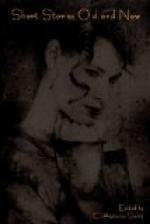Plot. “The Gold-Bug” is recognized as one of the world’s greatest short stories and marks a distinct advance in short-story structure. The plot is divided into two parts, which we may call mystery and solution, or complication and explication, or rise and fall. The second part begins with the short paragraph on page 91, beginning “When, at length, we had concluded our examination,” etc. Notice how skillfully the interest is preserved and even heightened as the plot passes from the romantic action of part one to the subtle exposition of part two. These two parts may be said to represent the two sides of Poe’s genius, the imaginative or poetical, and the intellectual or scientific. The treasure-trove is the symbol of the first, the cryptogram of the second. Stories had been written about buried treasures and about cryptograms before 1843, but the two interests had never before been combined. Poe’s example, however, has borne abundant fruit.
Characters. Poe’s strength did not lie in the creation of character. He is so intent on the development of the windings and unwindings of his story that the characters become mere puppets, originated and controlled by the needs of the plot. Jupiter deserves mention as one of the earliest attempts made by an American short-story writer to portray negro character. But Jupiter has been so far surpassed in breadth and reality by Joel Chandler Harris, Thomas Nelson Page, and a score of others as to be almost negligible in the count. In defense of Jupiter’s barbarous lingo, which has been often criticized, it should be remembered that Poe intended him as a representative of the Gullah (or Gulla) dialect. “It is the negro dialect,” says Joel Chandler Harris, “in its most primitive state—the ‘Gullah’ talk of some of the negroes on the Sea Islands being merely a confused and untranslatable mixture of English and African words.”
William Legrand, though not a great or notable character in any way, is admirably fitted to do what is required of him in the story. Like Poe, he was solitary, proud, quick-tempered, and “subject to perverse moods of alternate enthusiasm and melancholy.” He had also Poe’s passion for puzzles. Jupiter is hardly more than an awkward tool fashioned to display Legrand’s analytic and directive genius; and the other character in the story, like Dr. Watson in Conan Doyle’s Sherlock Holmes stories, is introduced merely to ask such questions as must be answered if the reader is to follow intelligently the unfolding of the plot. They are agents rather than characters.]
What ho! what ho! this fellow is dancing mad!
He hath been bitten by the Tarantula.
“All in the Wrong”
Many years ago, I contracted an intimacy with a Mr. William Legrand. He was of an ancient Huguenot family, and had once been wealthy; but a series of misfortunes had reduced him to want. To avoid the mortification consequent upon his disasters, he left New Orleans, the city of his forefathers, and took up his residence at Sullivan’s Island, near Charleston, South Carolina.




